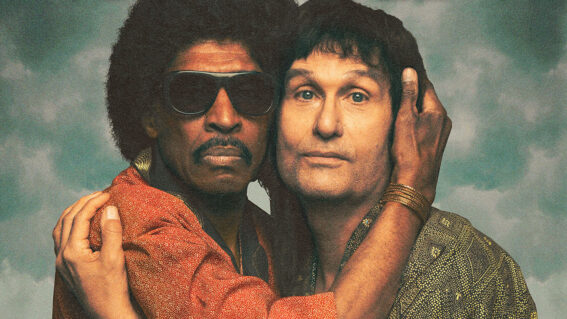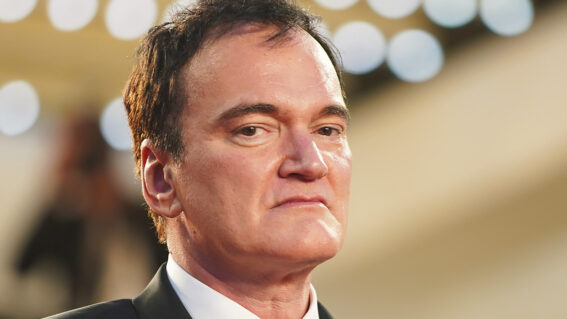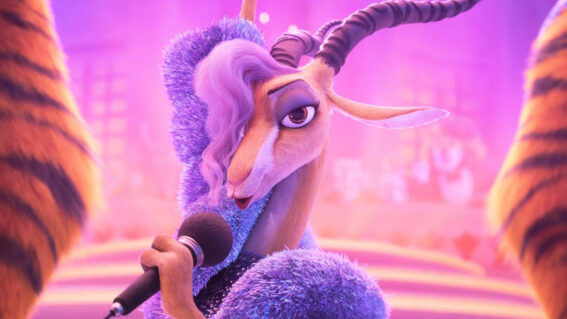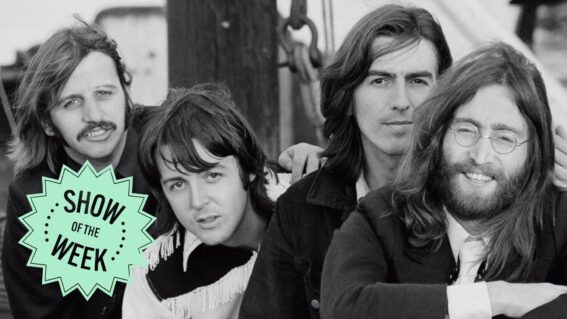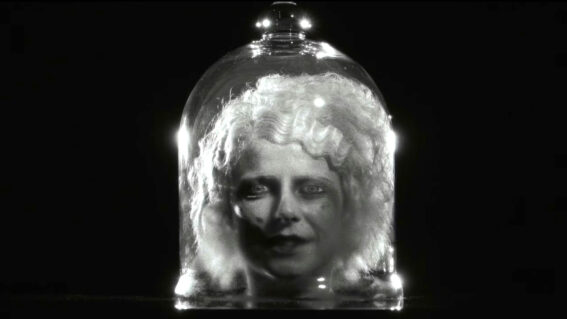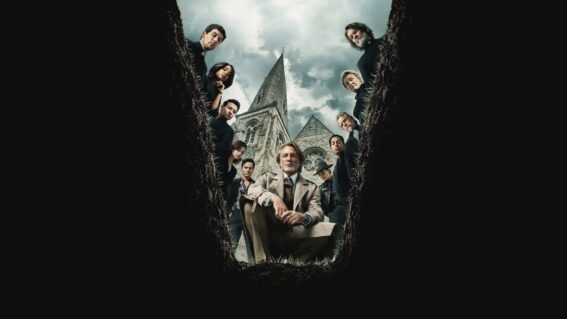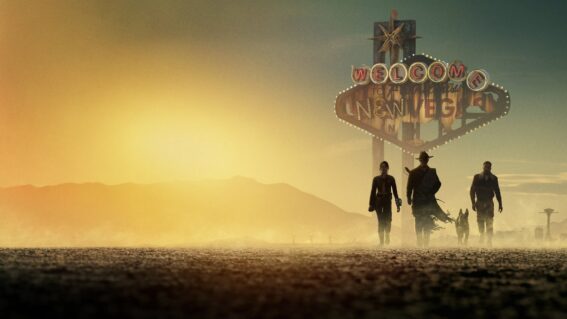Our NZIFF 2025 minis: N to Z
Our team of writers’ ever-growing coverage of NZ International Film Festival.
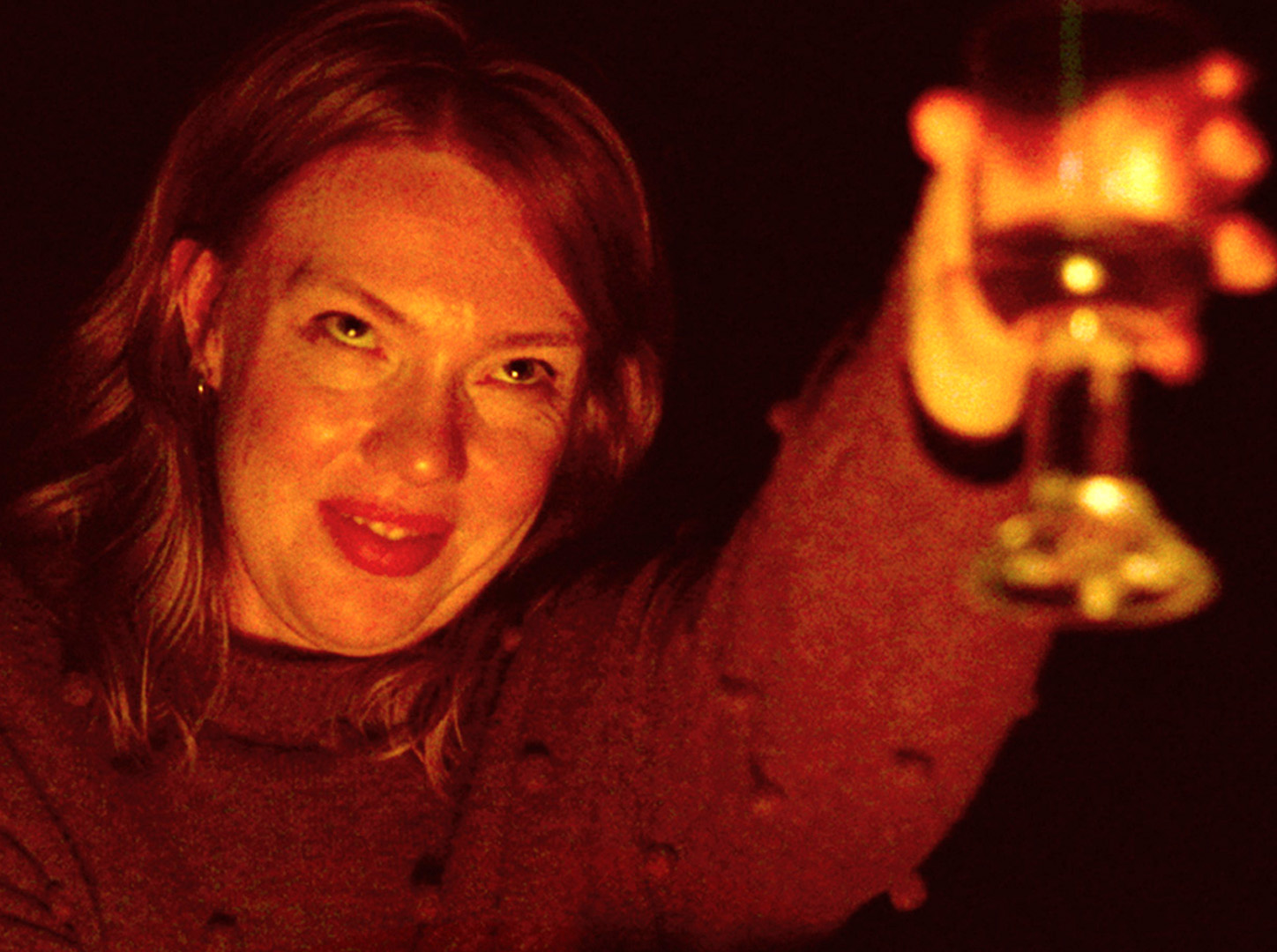
This year’s Whānau Mārama: New Zealand International Film Festival is now underway, and features plenty of gems.
Check out what we’re watching, and keep checking this page for our latest reactions, updated throughout the festival.
Latest NZIFF minis | Minis A – M | Minis N – Z
Notes from a Fish
Filmmaker Tom Levesque’s follow-up to Shut Eye (another DIY effort that played at NZIFF) makes for solid entertainment, similar to those French farces where the plot isn’t as important as the absurdity of the situations it generates. Co-directed by star Romy Hooper, who plays an overtly passionate marine life detective opposite Emilio Mancilla’s under-enthused wannabe author, the film moves at the speed of panic which makes the brisk 82-minute run time fly by. Some jokes land well while others rely more on being outrageous than witty and the story makes the odd decision to deplete the stakes well before the climax, but while there’s a nagging sense of a better movie hiding in Notes from a Fish, there’s an equally powerful feeling of admiration for a film shot in 10 days for $10,000 that moves and entertains this confidently.
LIAM MAGUREN
OBEX
Starts off as quite a charming look at the daily life of an aloof gentleman who lives alone with his dog in 1987. I also enjoyed the gradual, creepy, lo-fi turn into techno horror. Unfortunately, it all falls apart with a sudden genre shift to fantasy adventure, exposing the tiny budget like sunlight blasting through a cosy cave. Desperately needed people like the Viva La Dirt League crew to punch up the humour to make this section salvageable but all you’re left with is some half-jokes, shoddy side characters, fuzzy backstory, and a last-minute attempt to wrangle a moral from this story. Would have honestly preferred watching 90 minutes of this man and his dog living their happy lives by themselves.
LIAM MAGUREN
Pavements
A traditional doco could never capture the ethos, impact, or personalities of iconic 90s band Pavement. There’s enough archive and reminiscence here to satisfy a historical perspective, but filmmaker Alex Ross Perry utterly nails an unconventional approach that sits perfectly with the band’s aesthetic—and in particular, truculent contrarian (and sometimes savage) frontman Stephen Malkmus. Pavements layers fact and fiction wonderfully, with parallel approaches that ought not be spoiled. Equal parts funny, nostalgic, celebratory, and self-deprecating—as it should be.
STEVE NEWALL
Wowee Zowee, this rock-u-mock-u-mentary is a bit of a thrill ride for Pavement heads, of which I am glad to be one. Woe betide the casual observer or uninitiated, though, as over an equally reverent and ridiculous two hours we are treated to rare footage, generous access to the band, and of course interwoven snippets of a lovingly and hilariously fabricated Hollywood biopic (starring Joe Keery and with a Tim Heidecker cameo), and hyper-earnest Pavement musical that technically did actually get a showing. Capturing moments from the band’s inception to the recent reunion shows, it’s a glorious thing to see frontman Steve Malkmus’ redemption arc from the royally reluctant prince of the sullen slackers to someone who finally finds some joy in his own creation.
MATTHEW CRAWLEY
I was in the funny position of not really knowing anything about Pavement going into Alex Ross Perry’s documentary/biopic/satire. 2 hours and 8 minutes later I can’t say I am much more enlightened, and in fact feel more baffled by Gen X than ever. An inside joke that I have only myself to blame for not getting, I thought the music was good, the film was inventive and that I would rather be set on fire than spend five minutes alone with Stephen Malkmus.
KATIE PARKER
Peacock
This very Austrian black comedy follows a chap whose work requires him to check his identity at the door, and who gradually struggles to reconcile who he really is within his relationship and personal life. As funny as it was cautionary, this had hints of brilliant Swedish flick The Square at times, albeit a slightly smaller film than that was. If you like watching well-put-together people unravel and lose their veneer over the course of a couple of hours, hitch your tail feather to Peacock!
MATTHEW CRAWLEY
Predators
Astounding documentary about perhaps the most compellingly bleak and disturbing reality TV show ever made. Non-judgemental but unflinching, it begins as a clear-eyed exploration of the notorious American television phenomenon, academically dissecting the horrific spectacle of justice as entertainment and interviewing many of those involved. But it evolves unexpectedly into something deeper, something more personal and more provocative. It ends not with resolution, but on a quiet, hauntingly profound note.
DANIEL RUTLEDGE
Predators
Though what filmmaker David Osit reveals about early 2000s TV phenomenon To Catch A Predator is perhaps already fairly evident, this remarkably clear eyed and surprisingly moving documentary unpacks a particularly abhorrent cultural moment with admirable grace, nuance and empathy. Exposing a project more interested in queasy gotcha moments (and a fantasy about a group of people that it doesn’t count as human) than why its subjects do what they do (or how their victims are impacted by it), Predators is most riveting when Osnit draws on his personal experience with the show.
KATIE PARKER
Prime Minister
Watching this in a sold-out Civic Theatre was an emotional, somewhat cathartic experience as a look back at the very best and very worst of this country’s recent history. Filmed largely by Jacinda Ardern’s husband—who captured deeply private moments and was seemingly given unimpeded access to her professional sphere—it feels even more intimate than her recently released autobiography, making it deeply beautiful at times, uncomfortable and even excruciating at others. A deft, greatest-hits-style recap of her major achievements and unbelievable challenges in office, this will disappoint viewers seeking an objective or politically definitive portrait of Aotearoa’s 40th prime minister. But for those wanting uniquely personal insight into Jacinda beyond the public persona, it offers deep rewards, most potently through unflinching close-ups that capture history unfolding across her face. With everything that’s happened over the years, it’s easy to forget how singular a leader she was. Prime Minister serves as a powerful and openly heartfelt reminder.
DANIEL RUTLEDGE
Resurrection
I understood maybe 70% of what was going on here but was 100% immersed throughout Bi Gan’s colossal, kaleidoscopic anthology epic—a perfect ratio for a film wanting to relay the world of dreams. Woozily paced and sumptuously shot with a muscular production that mightily lifts its love for cinema history, this is an easy highlight of my festival. Heavily recommend watching Gan’s 15min film A Short Story to get a good impression of what to expect here (he also uses a very similar, surreal, spectacular shot in both films).
LIAM MAGUREN
Sentimental Value
I liked this one more than The Worst Person in the World, but after seeing both, I’m pretty sure Joachim Trier films aren’t really for me. They’re definitely not bad, with great performances and a wonderfully mature tone, but neither I’ve been able to fully connect with. Sentimental Value does eventually deliver an undeniably beautiful ending, I just walked away from it feeling mildly impressed but unsatisfyingly unmoved.
DANIEL RUTLEDGE
The Shrouds
Depicting death and dying in the digital age as only David Cronenberg can (erotically), I loved this weird, surreal, touchingly personal story of tech gone not so much mad as morbid. Featuring the kind of deliberately stilted performances and vague plot that will inevitably be interpreted by some audiences as “bad”, The Shrouds’ cold, aloof examination of grief belies a strangely moving story inspired by the director’s own loss. Sexy, sad and so funny, those willing to meet Cronenberg halfway will be rewarded with something special.
KATIE PARKER
Weirdly, it seems there was a printing error in the festival programme, because David Cronenberg’s latest outing was almost certainly written, directed, produced by, and starring Tommy Wiseau. Perhaps the dialogue was meant to be this stunted and laughable, but there were comparisons being made to Arnie in Vincent Cassel’s English language performance, and Guy Pearce’s 90s hacking terminology was only slightly less dated than the treatment of the female characters. If The Room meets Black Mirror sounds like a bit of you, by all means … get wrapped up in The Shrouds!
MATTHEW CRAWLEY
Sirât
The first HOLY SHIT film of the festival for me, Sirât will undoubtedly be one of the talks of the town this week. In turns riveting, ominous, and impeccably cast, this film is both unmissable and at times incredibly hard to watch. Also well worth noting, all the moods, from ecstatic to impossibly intense, are enhanced tenfold by the phenomenal (and Cannes winning) soundtrack from Kangding Ray. The less you know, the better.
MATTHEW CRAWLEY
And here I was, thinking Gaspar Noé’s Climax would be the only film I’d see in The Civic (NZIFF 2018) that would twist my stomach in knots while pumping EDM into my nightmares. Sirât by name, Sirât by nature, this is an uncompromising barrage of an experience, though calling it an “auteur Mad Max” is a bit misleading. We’re following janky vehicles in the desert, sure, but the vibes are closer to David Michôd’s The Rover and Joe Carnahan’s The Grey, where grimness and thrills co-exist in a decaying environment. It’s also marinated in metaphor, not that you (re: I) need to “get it” to be slammed by this absolute ride.
LIAM MAGUREN
Watching this on the gigantic Civic screen (and listening through its powerful PA), the cavernous and criminally underattended jewel of Auckland venues was the perfect place to experience Sirât‘s gorgeous, incredibly tense ride through the raves, deserts and mountains of Southern Morocco. Heeding the advice of Matthew Crawley’s mini, I went in as unspoiled as possible and can recommend this approach—echoed by a heckler who wisely interjected the pre-film introduction to head that possibility off at the pass (this year’s wobbly spoken intros have prompted many unimpressed conversations among festivalgoers—what gives, NZIFF?). Seen as big and loud as possible, it stuns eyes, rattles ears and shakes nerves. Superb.
STEVE NEWALL
Sorry, Baby
Yep, I’m adding to the hype train: this film’s a total winner. Eva Victor proves herself as a modern triple threat—assured direction, a whip-smart script, charismatic on-screen presence—with a film that miraculously pours tenderness over an acidic situation. Filled with funny quips that never downplay the seriousness of the hurt plaguing the lead character, Victor astutely shows us how there’s never one quick fix to healing such pain. It’s the smaller moments, rather, scattered throughout the years, that can build the kind of wisdom where closure can be sought on your own terms. That hit me profoundly. So did the dick jokes.
LIAM MAGUREN
Gutting and crack-up in equal measure, this is a clever and thoughtful film that presents the complexities of a heavy topic with deft sensitivity. People have been quick to compare Sorry, Baby to Fleabag—but it’s a gentler humour and slow series of small revelations that uncover weight at the heart of this film’s narrative. Refreshingly clear-eyed about how we make sense of the things that happen in our lives, Sorry, Baby is a quiet gem.
RACHEL ASHBY
Warm, quiet and understated, Eva Victor’s directorial debut has won widespread praise for its thoughtful meditation on an experience that will be familiar in one way or another to many women. Though I found it all a little bit too girl-who’s-going-to-be-ok-meme-esque at times, and not nearly as uproariously funny as some audiences, I appreciated Sorry, Baby’s hopeful and heartfelt approach and refusal to sensationalise its subject matter.
KATIE PARKER
TOITŪ Visual Sovereignty
If this was simply a look inside the process of curating modern Māori art, TOITŪ Visual Sovereignty would have held my attention just by following the mellow, mindful and mana-filled presence of curator Nigel Borell as he tames the whirlwind of responsibility that is selecting and presenting Aotearoa’s most engaging indigenous works. But director Chelsea Winstanley casts her net much wider, capturing a compelling microcosm of contemporary colonialism at work. Seemingly in praise of what Māori artists are expressing while being oblivious to the irony of their actions, the institutional force in question really shows themself up in Zoom hui—some of which feel almost scripted for a cringe sitcom like The Office. They’re one of the two people I angrily shook my head at during the World Premiere screening; the other was directed at myself for not catching all this stupendous art when the exhibition launched.
LIAM MAGUREN
Trenque Lanquen
Clocking in at over four hours, this episodic Argentinian mystery flick was enjoyable, but still a real tailbone tester. Trenque Lanquen has drawn comparisons at every turn to Twin Peaks, it being a small town with weird shit going on, and everyone seemingly connected to a missing young woman called Laura. Don’t get too excited by that comparison, it’s not quite worthy of sharing that pedestal, but it does have in common that its first half was compelling and gripping, while its second part attempts to have the mystery linger using increasingly ridiculous means. Worth a watch, but BYO cushion.
MATTHEW CRAWLEY
Twinless
Dylan O’Brien is really bloody good as a big-hearted bro-y dumb-dumb navigating the loss of his twin brother. But this is writer-director James Sweeney’s show, casting himself as the nexus of the film’s psychologically warped and emotionally twisted tale of friendship, loneliness, and desperation. Narratively inventive with proper dramatic heft that fuels the abundance of cringe comedy, this would pair nicely with Andrew DeYoung’s Friendship for anyone daring a double feature on destructive clinginess.
LIAM MAGUREN
The Weed Eaters
Sure, it’s technically a “funny horror” but I think to really understand the uniqueness of this homegrown DIY effort, it’s best to describe it as a deadpan gross-out comedy—a rare combo of disciplines this film punches out effortlessly. Weirdly reminiscent of Aussie flick Birdeater (which played at last year’s NZIFF) with the suspense centred on a young woman being stuck with her boyfriend’s dipshit mates, a rambunctious approach to editing, and a stupendous jazz score that rolls the whole joint together. Character motivations get a bit messy near the end, but not enough to kill the buzz.
LIAM MAGUREN
Hilarious, horrifying, gross and clever—this is CINEMA baby! I honestly haven’t had so much fun at the movies for a long, long time. The audience at the Civic Theatre world premiere was a riot of laughter and groans of disgust (my neighbour was literally dry gagging). This film isn’t just a triumph for micro-budget cinema, it’s a triumph full stop. It looks slick, the scripting is sharp, the cast is shit-hot and the music is *chef’s kiss*. This is a cult classic in the making, and if you’re smart you’ll get to a screening asap so you can have boasting rights for catching The Next Big Thing in Aotearoa Film before anyone else.
RACHEL ASHBY
Had I not been in attendance at The Weed Eaters‘ premiere screening at the Civic on Saturday night, I would have said the seemingly unanimous praise it received was likely the result of family and friends gassing up the makers. Not so! With great performances, perfect pace, and some deliciously revolting moments, it’s the kind of gleefully gory, hilariously deadpan romp that New Zealand horror movie dreams are made of.
KATIE PARKER
Loved it, loved it, loved it. I went into The Weed Eaters hoping for early-era Peter Jackson resource-stretching, dryballs Aotearoa humour and genre gross-out appreciation, and while it’s not as excessively gory as PJ, the pic paid off in spades. Punchy pacing and a tight edit (just 80 minutes—perfect!) help this debut feature avoid overreach, while it authentically incorporates genre elements (horror, stoner movie) that we’ve seen go wrong too many times in other, pandering films that don’t understand the terrain. Great to see a fresh crop of Aotearoa personalities conveyed on screen, from hapless dudes portrayed in a less cringily self-aware manner than their Conchords/Waititi screen predecessors to the strong female leads (special mention to Annabel Kean’s balancing act between lackadaisical stonerisms and simmering menace).
STEVE NEWALL
Went Up the Hill
Director Samuel Van Grinsven’s latest might end up being the most stonkingly gorgeous film I see at this year’s fest. The deeply saturated Canterbury ranges paired with the hard-edged, brutalist, architecturally delicious home central to this distinctive ghost story sets the morose tone in marble. Too much, perhaps, as I felt this film’s aversion to warmth kept our two grief-stricken strangers (Dacre Montgomery and Vicky Krieps doing fine work here) from earning a bond significant enough to make the ending truly stick. I also got frustrated at some of the contrived body-swapping possession, though they did lead to some compelling, confronting, cataclysmic moments.
LIAM MAGUREN
Werckmeister Harmonies
Celebrating 25 years with a sumptuous on-screen resurrection, fans of the cinematic beauty and cerebral fireworks of Andrei Tarkovsky and David Lynch will relish this monochromatic Hungarian masterpiece. Communism crushes the soul as a sinister circus disrupts a desolate town. Its main attraction? A gigantic, rotting whale. Surrender to its languid, hallucinatory dreamscape and you’re in for a mind-warping, magical, metaphorical movie, replete with imagery that lingers long after the final reel.
ADAM FRESCO
The Wolves Always Come at Night
Nearly bloody cried watching a goat give birth. Nearly bloody cried watching a man sip whiskey while whispering karaoke lyrics under his breath. These moments mean very little until you watch the whole film. That’s a testament the gentle storytelling power of director Gabrielle Brady’s follow-up to the excellent Island of the Hungry Ghosts. It’s essentially a story of two halves; the first invites us into the everyday lives of humble Mongolian herders, the second follows their relocation to the city when a freak storm forces their hand. Rather than wallow in misery, the film—like the story’s lead couple—does its best to stay centred and keep moving forward. Ironically, and perhaps intentionally, that normalisation of the climate crisis upset me more than anything else.
LIAM MAGUREN
Workmates
Clever, fast, and funny, this is an impressive local release with a lot of heart and soul. Strong performances from the whole cast, with a joyful amount of IYKYK local cameos popping up throughout. A romcom about loving and letting go, and a reminder that sometimes—even if you love something heaps—you might be part of the problem. Relatable (and low key triggering) for anyone who’s worked in community arts, it’s a great reminder that even the well intentioned old guard has to eventually make room for the new so that there can be growth. Fabulous to watch in the Civic and then walk straight out into the film’s primary shooting locations of the Basement Theatre and Aotea Square.
RACHEL ASHBY













